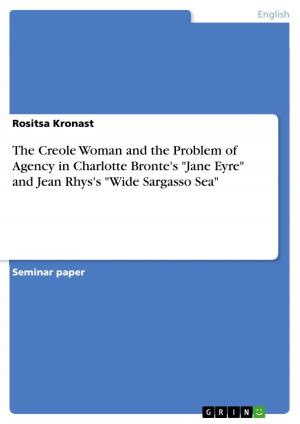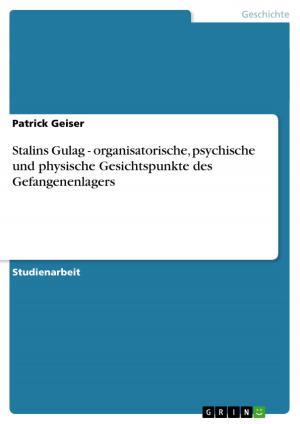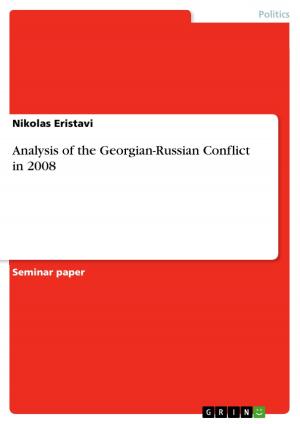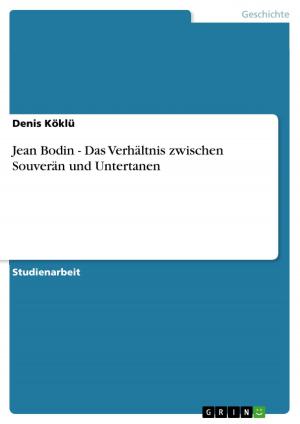The influence of ideology on the foreign policy behaviour of the Soviet Union and its East European satellites, 1945-61
The impossible balancing act
Nonfiction, History, European General| Author: | Simon M. Ingold | ISBN: | 9783638897280 |
| Publisher: | GRIN Publishing | Publication: | January 21, 2008 |
| Imprint: | GRIN Publishing | Language: | English |
| Author: | Simon M. Ingold |
| ISBN: | 9783638897280 |
| Publisher: | GRIN Publishing |
| Publication: | January 21, 2008 |
| Imprint: | GRIN Publishing |
| Language: | English |
Seminar paper from the year 2005 in the subject History Europe - Germany - Postwar Period, Cold War, grade: Honors (Bestnote), Yale University (Yale University), 4 entries in the bibliography, language: English, abstract: In order to evaluate the influence of ideology on the foreign policy behaviour of the Soviet Union and its satellites during the phase of 1945-61, I will start with an overview of the specific functions that Marxist-Leninist ideology fulfilled in the context of Soviet foreign policy. This is critical for the understanding of the practical uses of ideology in the policy making process and for the Soviet cause as a whole. In a second step, I will set forth the role of ideology and its different functions during the Stalinist era (1945-53) and up to the building of the Berlin wall in 1961. Special emphasis will be laid on changes in the use of ideology as a foreign policy tool and their respective causes. This analysis is followed by an assessment of the implications on the responsibility for the Cold War in Europe.
Seminar paper from the year 2005 in the subject History Europe - Germany - Postwar Period, Cold War, grade: Honors (Bestnote), Yale University (Yale University), 4 entries in the bibliography, language: English, abstract: In order to evaluate the influence of ideology on the foreign policy behaviour of the Soviet Union and its satellites during the phase of 1945-61, I will start with an overview of the specific functions that Marxist-Leninist ideology fulfilled in the context of Soviet foreign policy. This is critical for the understanding of the practical uses of ideology in the policy making process and for the Soviet cause as a whole. In a second step, I will set forth the role of ideology and its different functions during the Stalinist era (1945-53) and up to the building of the Berlin wall in 1961. Special emphasis will be laid on changes in the use of ideology as a foreign policy tool and their respective causes. This analysis is followed by an assessment of the implications on the responsibility for the Cold War in Europe.















